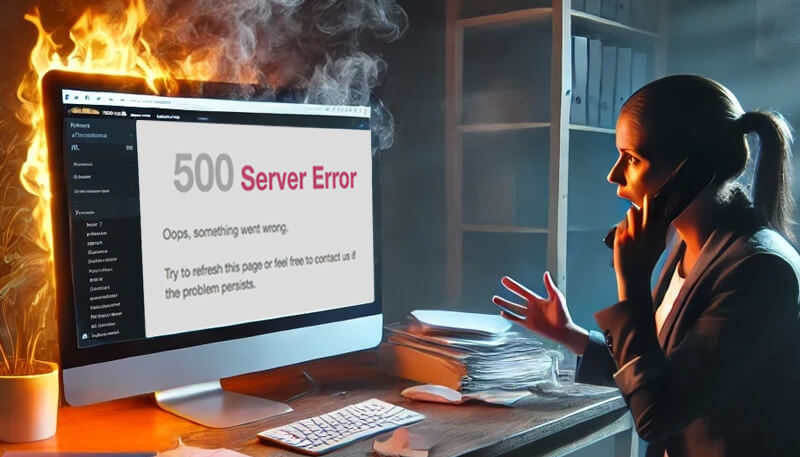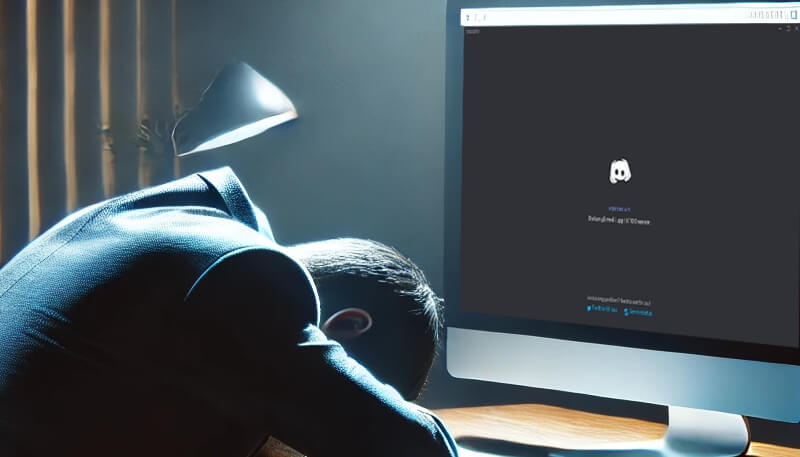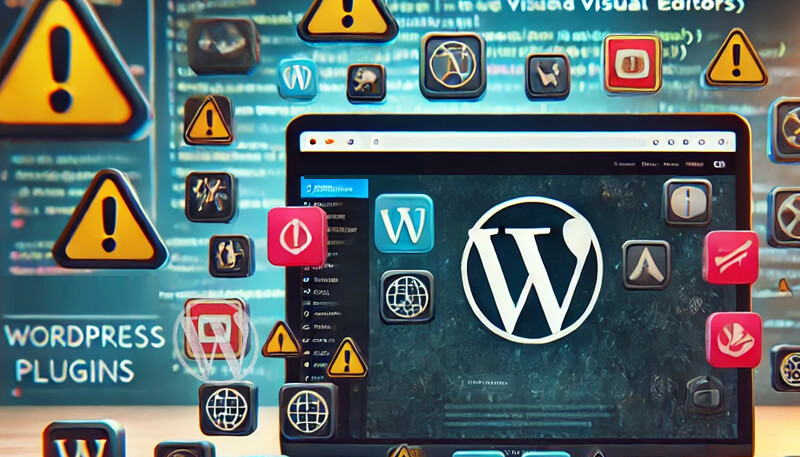Don’t Get Ripped Off: Watch Out For These Red Flags When Hiring a WordPress Developer
Let’s face it—hiring a WordPress developer can feel like walking through a minefield. We’ve seen way too many business owners get ripped off by so-called “experts” who promise the world, take your money, and leave you with a website that’s slow, broken, or impossible to manage. Sound familiar?
At Lucid Crew, we’ve heard it all. Websites loaded with clunky, cookie-cutter templates, developers who vanish mid-project, and sites that crash the moment you try to update anything. It doesn’t have to be this way. You just need to know what to look out for—and we’re here to help.
If you want to avoid the headaches and find a developer who will get the job done right, here are some of the biggest red flags to watch for, plus actionable tips to ensure your site isn’t just pretty but works like a charm.
The Truth About Developer Portfolios: Verify They Did the Work
Here’s the thing: anyone can throw together a portfolio that looks impressive. But how do you know if the developer actually built those sites? A lot of times, developers outsource the work overseas and claim it as their own, or worse, they use a premium theme from a site like ThemeForest and slap your logo on it. Now, you’ve got a website built with tools they don’t even control.

What to do: Don’t just look at the pretty pictures. Contact the clients directly and ask, “Did this developer actually do the work?” Get them to tell you about their experience. And when you talk to the developer, ask specific questions about the projects—what challenges they faced, what customizations they made. A real developer will be able to give you the nitty-gritty details, not just a surface-level story.
Watch out for: Inconsistent quality across the portfolio or websites that all look like they came from the same template. If every site looks like it was built on a cheap theme, that’s a bad sign.
Poor Communication = Big Problems
Bad communication is a flashing neon red flag. If you’re constantly chasing down your developer for updates or getting vague responses when you ask for specifics, you’re headed for trouble. Delays, misunderstandings, and frustration come hand-in-hand with bad communication.
But it’s more than just slow responses—be on the lookout for unrealistic promises too. Some developers will tell you they can build your dream site in a week for dirt cheap, but you’ll end up with a half-baked mess that doesn’t even function properly.
What to do: Test their communication early. During the initial conversation, ask how they plan to handle regular updates and keep you in the loop. If they’re slow or unclear before you even hire them, it won’t get better later.
Watch out for: Developers who say yes to everything without asking you detailed questions. That means they’re either not paying attention or they’re trying to reel you in with promises they can’t keep.
Don’t Trust a Developer with No References or Bad Reviews
Look, anyone can put together a snazzy website and call themselves a “developer.” But what do their past clients have to say? No references? Bad reviews? That’s a massive red flag. If other people weren’t happy with their work, you probably wouldn’t be either.

What to do: Ask for references—real ones. And don’t just take the developer’s word for it. Actually call or email those references and ask about their experience. Were they happy with the work? Did the developer stick around for support after the site launched?
Watch out for: Developers who dodge your request for references or try to talk their way out of it. If they can’t point you to satisfied clients, run the other way.
Beware the Over-Reliance on Plugins and Visual Editors
We get it—WordPress plugins and visual editors like Elementor or Beaver Builder make a developer’s job easier. But here’s the catch: too many plugins and editors can slow your site down to a crawl. And when you want to make changes later, guess what? Those fancy visual editors make your site a nightmare to update without breaking things.
Worse, developers who rely on plugins instead of custom coding often do so because they don’t have the skills to build something unique to your business.
What to do: Ask about their development process. Do they write custom code, or do they slap together plugins and call it a day? Look for developers who know how to use plugins when necessary but can also build custom features from scratch when needed.
Watch out for: Developers who throw a ton of plugins at your project or push you toward using visual editors without discussing the long-term consequences. These tools can make things look great up front, but they create major problems down the road.
Premium Themes: A Fancy Way to Get Stuck with a Bad Site
A lot of developers will build your site using a “premium theme” from a site like ThemeForest. And hey, those themes look really good at first glance. But what they don’t tell you is that premium themes are packed with unnecessary features and bloated code that slow down your site. Plus, you’re locked into their rigid design, which makes future changes a pain in the neck.
Worse, if the theme developer stops updating it, your site could quickly become incompatible with new versions of WordPress or essential plugins.

What to do: Ask your developer if they’re using a custom theme or a premium one. Custom coding is almost always better because it’s tailored specifically to your needs and won’t leave you stuck with code you don’t need.
Watch out for: Developers who push premium themes without telling you about the downsides, especially if they refuse to explain the pros and cons of custom themes vs. pre-built ones.
Speed Matters—And Some Developers Don’t Care
You can have the most beautiful website in the world, but if it’s slow, your visitors won’t stick around. And slow sites don’t just frustrate people—they hurt your SEO too. Google straight-up penalizes slow websites in search rankings.
Developers who rely too much on visual editors or premium themes tend to deliver slow-loading sites because these tools create bloated code.

What to do: Use Google PageSpeed Insights to test how fast your site loads. Ask your developer how they optimize for speed. Are they minimizing code, optimizing images, and reducing plugins? A good developer knows how to keep your site fast.
Watch out for: Developers who dismiss the importance of speed or don’t know how to improve it. If they say, “It’s just the way WordPress is,” they don’t know what they’re talking about.
Is Your Developer Going to Disappear After the Project?
You’ve paid your developer, the site is live, and now… they’ve disappeared. What happens when you need updates, fixes, or support? You can’t afford a developer who vanishes the moment the job is done.

What to do: Make sure the developer offers post-project support and is available for ongoing maintenance. You don’t want to be left hanging when something breaks.
Watch out for: Developers who are vague about support after launch or don’t include it in their contract. This is a sign they’re going to vanish the moment they’re paid.
Developers Who Upsell Unnecessary Features
Some developers will try to pad the bill by convincing you that you need extra features that don’t really add value. More often than not, these “add-ons” just complicate your site without giving you any real benefit.

What to do: Stick to your project’s original goals. Ask yourself, “Do I really need this feature, or is it just fluff?” A good developer will prioritize what’s important and won’t try to sell you on extras that make no sense for your business.
Watch out for: Developers who constantly push upgrades or extra services. If they’re more focused on selling than solving your problems, find someone else.
No Clear Project Scope or Milestones
If your developer isn’t laying out a clear roadmap for your project with milestones and a defined scope, you’re headed for trouble. Vague promises of “I’ll have it done next week” with no specifics lead to endless delays and half-finished work.
What to do: Ask for a detailed timeline and project plan before you start. A good developer will provide regular updates, show you progress at each stage, and stick to deadlines.
Watch out for: Developers who don’t want to commit to specific deliverables or timelines. That’s a recipe for frustration.
FAQ: More Common Issues When Developing or Redeveloping a WordPress Site
How long should it take to develop a WordPress website?
The timeline depends on your project’s complexity. A simple site can take anywhere from 2 to 4 weeks, while more custom and feature-heavy sites can take a few months. Always ask for a clear timeline and set expectations upfront. Watch out for developers who promise unrealistic deadlines just to get the job, as they’ll likely cut corners to meet them.
Can I update my WordPress site myself after it’s built?
Yes, WordPress is designed to be user-friendly, and many developers will set up your site so you can manage basic updates like adding blog posts or editing content yourself. However, more technical updates—like installing plugins or optimizing for SEO—might require a developer’s help. Ask your developer for training or documentation on how to manage your site after launch.
My site doesn’t look right on mobile. What’s wrong?
This likely means the developer didn’t implement responsive design properly. Your site should adjust automatically to look great on mobile devices, tablets, and desktops. Make sure your developer tests the site on multiple devices and browsers before launch to avoid this issue.
How often should my WordPress site be updated?
Your WordPress site should be updated regularly—usually once a month. This includes updates to WordPress core, plugins, and themes to keep your site secure and compatible with new features. Don’t skip updates; doing so leaves your site vulnerable to hacks or other security breaches. Ask your developer if they offer ongoing maintenance plans to handle updates for you.
Take Control of Your Website’s Success
Hiring the right WordPress developer is one of the most important decisions you’ll make for your business. The wrong developer can leave you with a slow, broken, or unmanageable website—but the right one will deliver a fast, scalable, and user-friendly site that works for your business.
You don’t have to be a tech expert to avoid the common pitfalls. By asking the right questions, demanding transparency, and spotting the red flags we’ve laid out, you can protect your investment and ensure a smooth development process.
Ready to work with a team that’ll be there for you from start to finish—and beyond? At Lucid Crew, we build websites that don’t just look great—they work. Let’s get started today. Your business deserves better than shortcuts, excuses, and disappearing developers.






